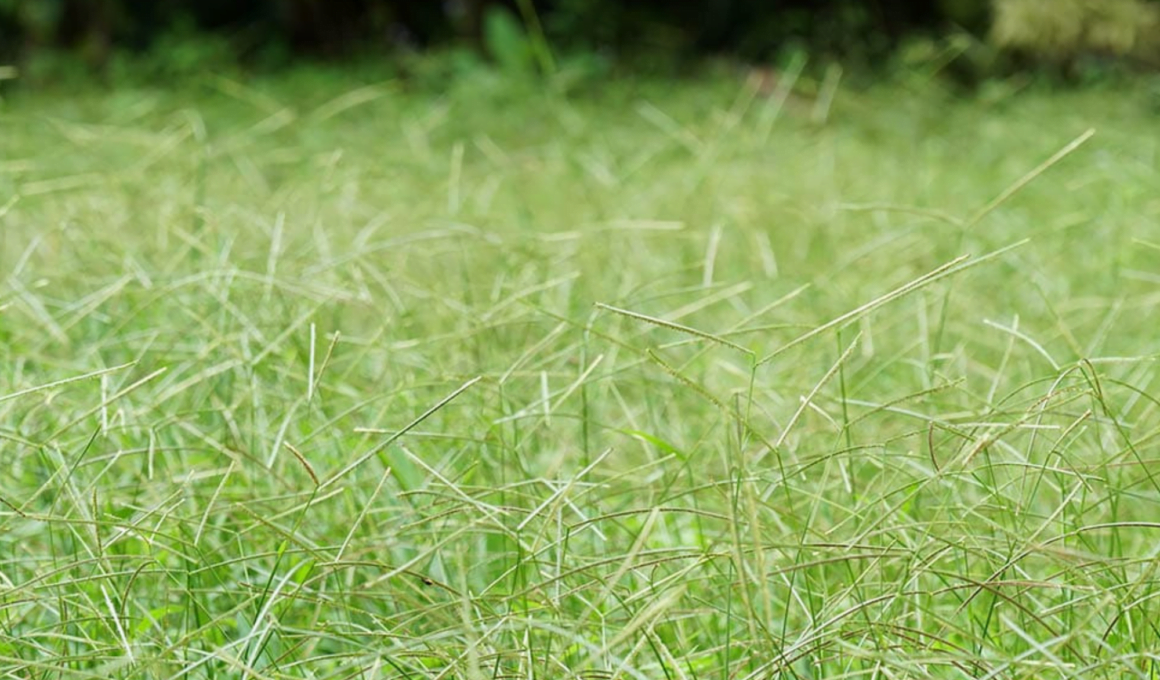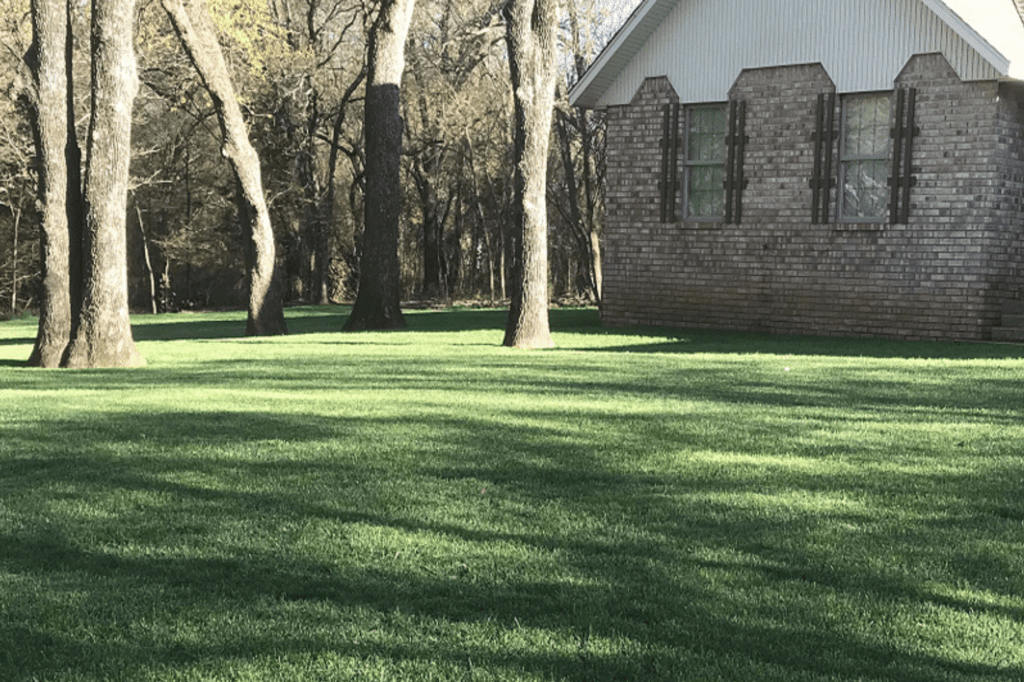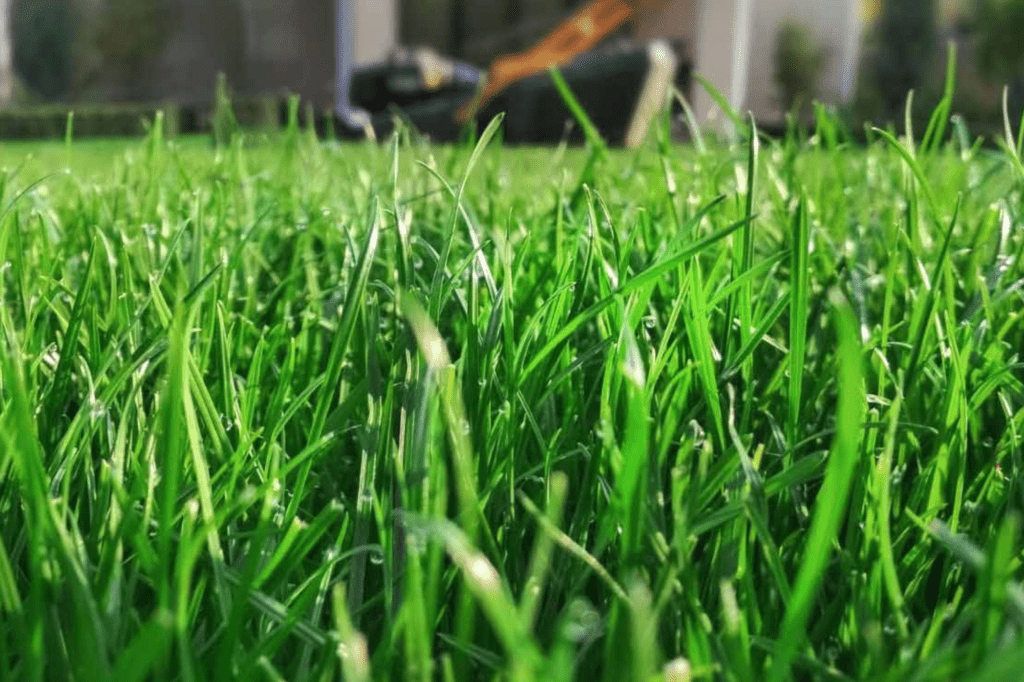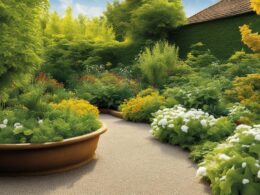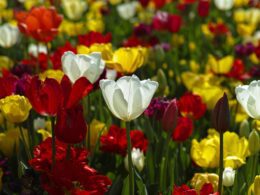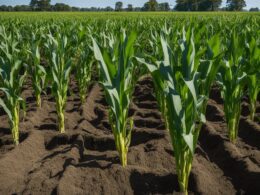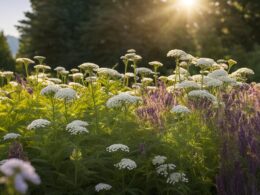When it comes to having a lush, green lawn, choosing the right type of grass is crucial. In Louisiana, the warm, humid climate can make it challenging to maintain a healthy lawn. That’s why it’s essential to select the right grass variety for your specific needs.
In this guide, we will take a closer look at the different types of grass that thrive in Louisiana. We will explore popular grass varieties, native species, and low-maintenance options to help you make an informed decision. Whether you’re looking for a warm-season grass or a cool-season option, we’ve got you covered.
So, if you’re ready to take your Louisiana lawn to the next level, read on and discover the best types of grass for your yard.
Warm-season Grasses: Perfect for Louisiana’s Climate
If you’re looking for grasses that can thrive in Louisiana’s hot and humid climate, warm-season grasses are an excellent choice. These grasses are well-suited to hot summers and mild winters, making them the ideal choice for lawns in Louisiana.
Some of the most popular warm-season grasses in Louisiana include:
| Grass Type | Features |
|---|---|
| Bermuda grass | A durable grass that is highly tolerant of heat and drought conditions. It is also a popular choice for sports fields and golf courses. |
| Zoysia grass | A slow-growing grass that is highly resistant to wear and tear. It is also very drought-tolerant and can handle moderate shade conditions. |
| St. Augustine grass | A thick, lush grass that grows well in warm, humid conditions. It is also highly resistant to salt and can thrive in coastal areas. |
When choosing a warm-season grass for your lawn, you should consider the specific conditions of your yard. Some grasses may be better suited to full sun conditions while others can handle moderate shade. It’s also important to consider the maintenance requirements of each grass type, as some require more frequent mowing and watering than others.
Overall, warm-season grasses are a great choice for Louisiana lawns, providing a lush, green lawn that can withstand the heat and humidity of the region.
Cool-season Grasses: Options for Louisiana Lawns
Cool-season grasses are a great option for Louisiana homeowners looking to maintain a lush green lawn throughout the year. These grasses are known for their ability to thrive in cooler seasons, making them ideal for the milder winter months in Louisiana. Here are some of the top cool-season grasses to consider for your lawn:
| Grass Variety | Description |
|---|---|
| Kentucky Bluegrass | Kentucky bluegrass is a popular choice for cool-season lawns due to its fine texture and deep blue-green color. It is also known for its excellent cold tolerance and drought resistance. However, it requires frequent watering and maintenance. |
| Perennial Ryegrass | Perennial ryegrass is a fast-growing grass that thrives in cooler weather. It is perfect for high-traffic areas, such as play areas and sports fields. However, it does not tolerate heat and summer drought well. |
| Tall Fescue | Tall fescue is a low-maintenance grass that can withstand both hot and cold weather. It has a deep root system, making it drought-resistant and tolerant of heavy traffic. However, it may require regular fertilization and watering during hot summers. |
If you’re looking for low maintenance grass options for your Louisiana lawn, tall fescue is a great choice. It can thrive in a wide range of soil types and is resistant to pests and diseases. It can also handle both sun and shade, making it ideal for lawns with trees or other shade-providing structures.
To ensure the success of your cool-season lawn, it is important to plant the grass in the fall when the soil temperatures are cooler. This will give the grass enough time to grow before the summer heat arrives.
Native Grass Species: A Natural Choice for Louisiana
When it comes to selecting grass for your Louisiana lawn, you may want to consider using native grass species. These grasses have evolved over time to adapt to the local climate and soil conditions, making them a natural choice for many homeowners. Native grasses require less water and fertilizer, and they are often more resistant to pests and diseases.
One popular native grass species in Louisiana is the Eastern gamagrass (Tripsacum dactyloides). This warm-season grass can grow up to 7 feet tall and is known for its deep, fibrous root system, which helps to prevent soil erosion. Eastern gamagrass is also an excellent forage plant, providing food for livestock and wildlife, while also controlling soil erosion.
| Native Grass Species | Description |
|---|---|
| Gulf cordgrass (Spartina spartinae) | Used for stabilizing soil along saltwater coastlines |
| Big bluestem (Andropogon gerardii) | Can reach up to 8 feet tall and is tolerant of drought and fire |
| Switchgrass (Panicum virgatum) | Grows up to 6 feet tall and is ideal for erosion control and biofuel production |
| Little bluestem (Schizachyrium scoparium) | Tolerates drought and poor soil conditions, making it ideal for low-maintenance lawns |
Another native grass species to consider is Gulf cordgrass (Spartina spartinae). This grass is commonly found in coastal areas and is ideal for stabilizing soil along saltwater coastlines. Gulf cordgrass can also provide habitat and food for wildlife, such as birds, fish, and insects.
Big bluestem (Andropogon gerardii) is a tall, warm-season grass that can reach up to 8 feet in height. This grass is tolerant of drought and fire, making it an excellent choice for areas prone to wildfires. Switchgrass (Panicum virgatum) is another warm-season grass that can grow up to 6 feet tall and is used for erosion control and biofuel production.
Little bluestem (Schizachyrium scoparium) is a low-maintenance native grass species that tolerates drought and poor soil conditions, making it a great option for homeowners seeking a low-maintenance lawn.
Using native grass species in your Louisiana lawn can have several advantages. These grasses are well-suited to the local climate and soil conditions, meaning they require less maintenance and are more resistant to pests and disease.
Additionally, native grasses can provide habitat and food for wildlife, helping to support the local ecosystem. Consider incorporating one or more of these native grass species into your lawn to enjoy the benefits of a natural, low-maintenance, and eco-friendly landscape.
Covering Frequently Asked Questions about Types Of Grass In Louisiana
As you consider various grass options for your Louisiana lawn, it’s natural to have questions. To help make the decision process easier, we’ve compiled answers to some of the most frequently asked questions about types of grass in Louisiana.
What are some shade-tolerant grasses for Louisiana lawns?
If your lawn doesn’t receive full sun throughout the day, you may need to consider shade-tolerant grass options. Two great shade-tolerant grasses commonly used in Louisiana lawns are St. Augustine grass and Zoysia grass. Both varieties are known for their ability to thrive in partially shaded areas.
What are some maintenance tips for different grass varieties?
Keeping your lawn healthy involves regular maintenance, and different grass varieties have different needs. Warm-season grasses generally require less maintenance than cool-season varieties, but both can benefit from fertilization and regular mowing. It’s important to mow your lawn at the right height for your specific grass variety, as cutting it too short can damage the grass.
What grasses would you recommend for specific lawn conditions?
For high-traffic areas such as sports fields or playgrounds, Bermuda grass is an excellent choice due to its durability. If you’re looking for a low-maintenance option, tall fescue is a good choice as it requires less watering and fertilization than some other varieties. Additionally, if you’re looking for a grass that can thrive in coastal regions of Louisiana, consider saltgrass, which is known for its ability to tolerate saltwater and sandy soil.
By considering your lawn’s specific conditions and needs, you can choose the best grass variety for your Louisiana yard.





